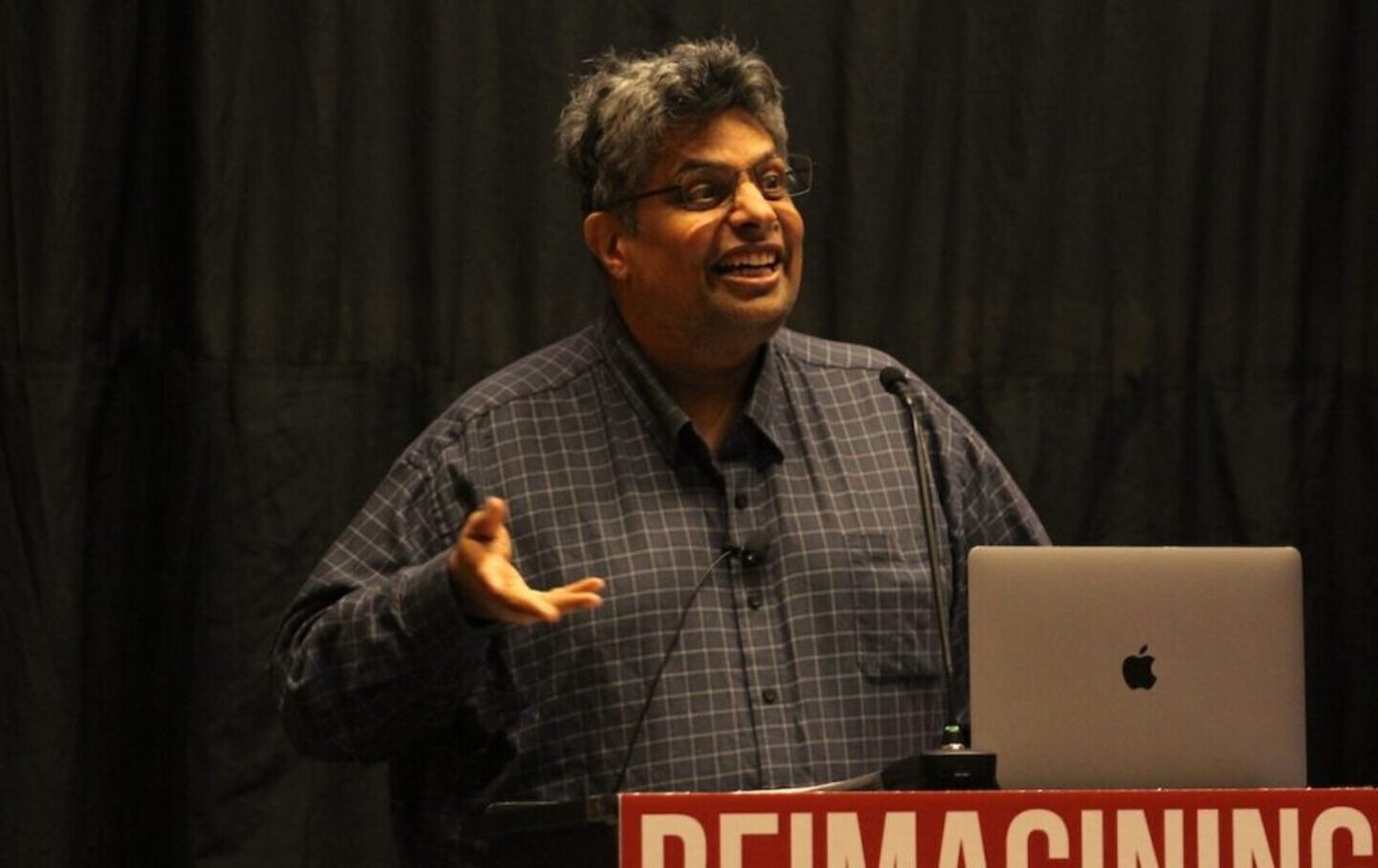Factchecking Won’t Save Democracy
On this episode of The Time of Monsters, a talk about the rise of anti-system politics.

Here's where to find podcasts from The Nation. Political talk without the boring parts, featuring the writers, activists and artists who shape the news, from a progressive perspective.
For this week's edition of The Time of Monsters podcast, we're posting a talk that host Jeet Heer gave at Carleton University earlier this November on how the crisis of democracy is related to the crisis of journalism. In the talk, I argue that we are living in an age where the salient political divide is not so much left/right as system/antisytem. Liberals have tried to fight antisystem politicians like Donald Trump by doubling down on factchecking.
But as I argue, this strategy is deeply flawed since voters who respond to antisystem arguments are also skeptical of institutions that claim to check facts. The talk tries to lay out a strategy for engaging with antisystem anger in a more productive way.
Advertising Inquiries: https://redcircle.com/brands
Privacy & Opt-Out: https://redcircle.com/privacy

Keynote speaker Jeet Heer questions the role of fact-checking in an increasingly distrusting society at the Reimagining Political Journalism conference at Carleton University on Nov. 15, 2024.
(Natasha Baldin)For this week’s podcast, I’m posting a talk I gave at Carleton University in Ottawa, Canada, earlier this November on how the crisis of democracy is related to the crisis of journalism. In the talk, I argue that we are living in an age where the salient political divide is not so much left/right as system/anti-system. Liberals have tried to fight anti-system politicians like Donald Trump by doubling down on fact-checking.
But I maintain that this strategy is deeply flawed, since voters who respond to anti-system arguments are also skeptical of institutions that claim to check facts. The talk tries to lay out a strategy for engaging with anti-system anger in a more productive way.

Here's where to find podcasts from The Nation. Political talk without the boring parts, featuring the writers, activists and artists who shape the news, from a progressive perspective.
Even as he imposes authoritarianism on the United States, Donald Trump has given a new lease on life to the center left in many other countries. Canada is holding an election at the end of April under the shadow of the American presidents threat to turn it into the 51st state. Until Trump’s inauguration, the Conservative Party of Canada had a commanding lead. But voters are changing their minds fast and it now looks like the Liberal Party under new leader Mark Carney will win the election.
To talk about the quick revolution in Canadian politics I spoke to Luke Savage, a widely published journalist and substracker. We take up not just Canada’s likely rejection of Trumpism but also the question of whether Carney’s technocratic centrism really offers an alternative. If there is to be a new Canadian nationalism, will it have more substance than Carney offers?
Advertising Inquiries: https://redcircle.com/brands
Privacy & Opt-Out: https://redcircle.com/privacy
Subscribe to The Nation to Support all of our podcasts
Hold the powerful to account by supporting The Nation
The chaos and cruelty of the Trump administration reaches new lows each week.
Trump’s catastrophic “Liberation Day” has wreaked havoc on the world economy and set up yet another constitutional crisis at home. Plainclothes officers continue to abduct university students off the streets. So-called “enemy aliens” are flown abroad to a mega prison against the orders of the courts. And Signalgate promises to be the first of many incompetence scandals that expose the brutal violence at the core of the American empire.
At a time when elite universities, powerful law firms, and influential media outlets are capitulating to Trump’s intimidation, The Nation is more determined than ever before to hold the powerful to account.
In just the last month, we’ve published reporting on how Trump outsources his mass deportation agenda to other countries, exposed the administration’s appeal to obscure laws to carry out its repressive agenda, and amplified the voices of brave student activists targeted by universities.
We also continue to tell the stories of those who fight back against Trump and Musk, whether on the streets in growing protest movements, in town halls across the country, or in critical state elections—like Wisconsin’s recent state Supreme Court race—that provide a model for resisting Trumpism and prove that Musk can’t buy our democracy.
This is the journalism that matters in 2025. But we can’t do this without you. As a reader-supported publication, we rely on the support of generous donors. Please, help make our essential independent journalism possible with a donation today.
In solidarity,
The Editors
The Nation
